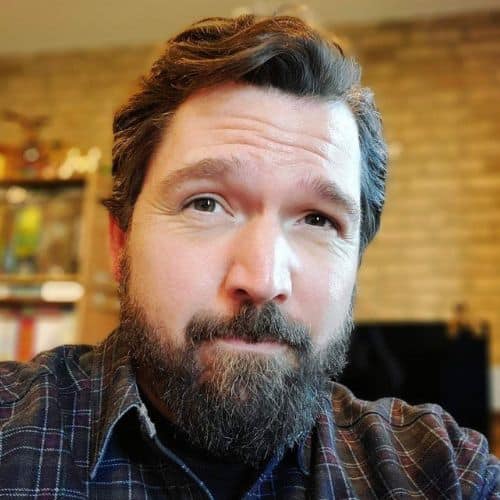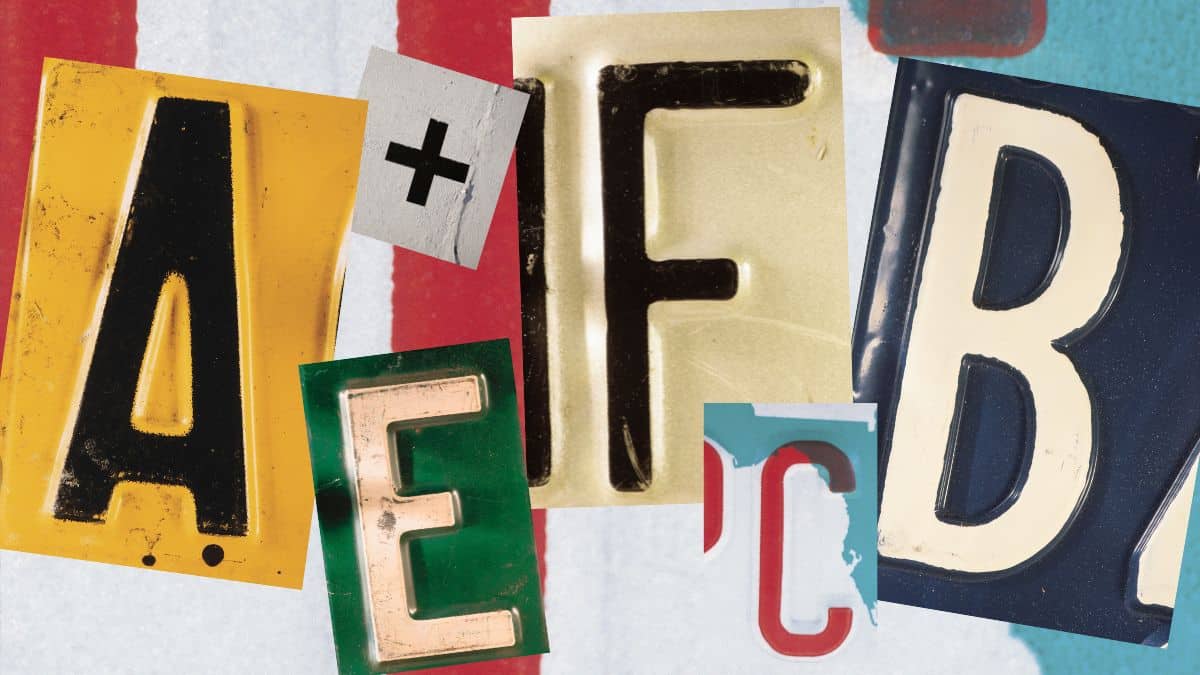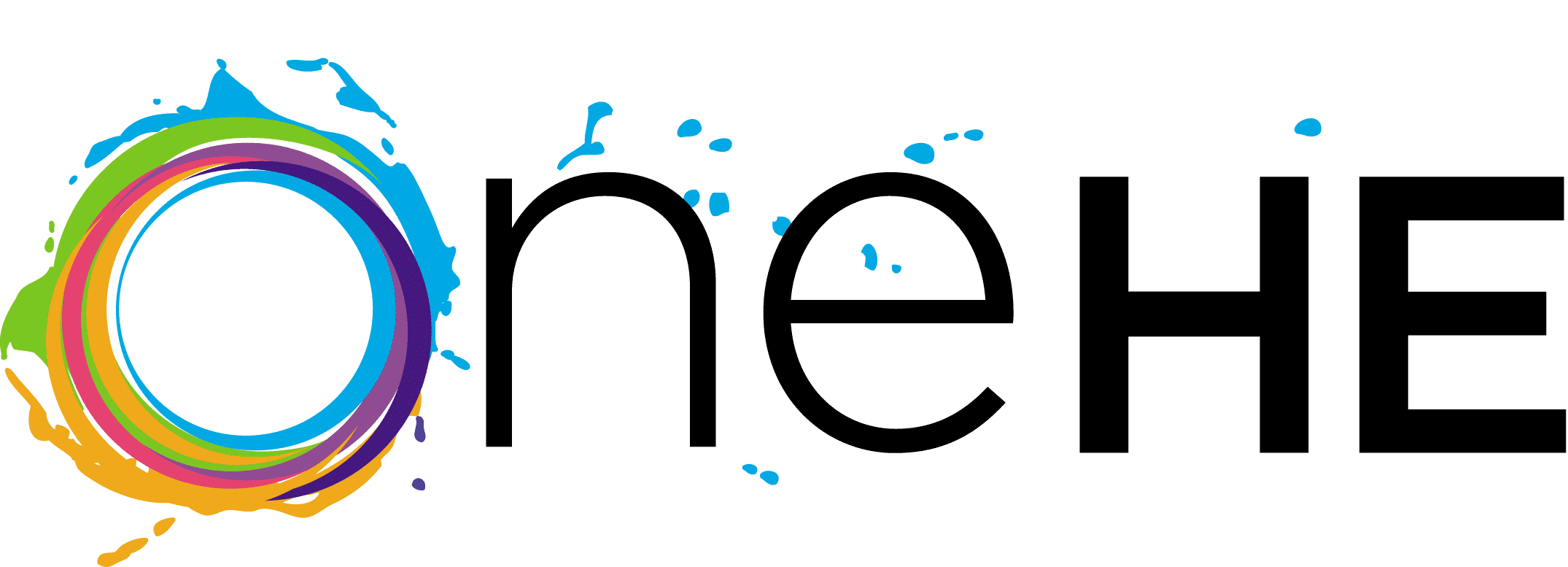What is Ungrading: A Perspective from Jesse Stommel

Jesse Stommel

Todd D. Zakrajsek

Click on this text to view the video transcript
– Here to chat with Jesse Stommel, who’s the author of “Undoing the Grade: “Why We Grade and How to Stop.” And Jesse’s a faculty member in the writing programme at the University of Denver. And thank you so much for joining us today, Jesse.
– Super glad to be with you. Look forward to our conversation.
– Thank you. So this is a OneHE interview and today we’re gonna talk a little bit about ungrading, I know something near and dear to your heart. And so just to help people out because I know there’s so many people out there who think that ungrading means you just don’t give grades. Could you do a quick rundown of what’s the concept here is of ungrading?
– Yeah, so I mean, the way that I define ungrading is I define it as raising an eyebrow at grades as a system or structure. So ultimately what it is is an interrogation of how grades, how quantitative assessment, how standardised assessment structure the rest of education. So how much of what we do in classrooms at our institutions of education is actually structured by grades as a system. So ultimately, it’s a structural critique, a systemic critique, more than it is a set of neat and tidy practises.
So I always push back a little bit on best practises or a set of five things you can do tomorrow to start ungrading. And part of the reason I do that is because I actually think those best practises, the notion that there is five things we can do tomorrow is part of that structure that I find problematic within education. So really, ungrading is a series of conversations that we have to probe and sort of get at what the problem of grades is and how grades aren’t succeeding at supporting our students or honestly making our jobs as teachers more effective or more joyful for that matter.
– Oh, well, that’s curious though because if it’s just kind of like critiquing the system then, so what do I do as a faculty member? I mean, what’s my process?
– To me ultimately, yeah, so I mean, to me ultimately, that’s where we start. We start with that systemic critique, that structural critique. What are grades? Why do they work? What is the problem with grades? How are they getting in our way? And then the next step of that conversation is to ask ourselves what do we need to do to knock some of these roadblocks out of our way? But the reason it isn’t a set of five neat and tidy things that you could do tomorrow is because each of us teach at different institutions, teach different students, teach in different bodies, teach different disciplines. And so ultimately, we each have a different path towards the work of dismantling grades as a system. So, there are five different things that I could mention as things that might possibly work in your classroom, but there isn’t a neat and tidy easy script for how to do this. So, that structural conversation, that sort of probing, raising our eyebrows suspiciously at grades as a system is necessary at the beginning for us to figure out what’s gonna work best in our context.
– So I guess I got that, but if I’m raising my eyebrow, which I can do, you know, I’ve been teaching for a long time and not really a big fan of grades, I never have been, this whole concept that somehow I’m supposed to identify you as a B+ or a B- student. But once I’ve raised my eyebrow, then I guess I’m kind of a little bit stuck still. So what do I do next if I wanna be and kind of go down the path of ungrading? And I totally get that. You can’t tell me like what to do, but how do I know how to proceed with this?
– Yeah, and if I would say what’s the first step, and if there’s anything close to one thing that we should do tomorrow to start ungrading, it’s to start by having that conversation sort of inside of ourselves with our colleagues. But then to have that conversation with students. So going into a classroom of students and asking what motivates you? What’s in your way? What struggles do you face? And that conversation alone does a couple things. One, it gives us information that might help us sort of fine tune our approach, but it also does the work of bringing students kind of under the hood of their own education.
So, that to me, is really key is that grading an assessment not be something that we’re doing to students, not something that happens to students, but a process that students are actively involved in. So I mean, that’s the easy thing that we can all do that doesn’t necessarily take much time in our classroom, doesn’t even necessarily fundamentally change our pedagogies, although it has the ripple effect of doing that eventually ’cause the more we know our students and the more we know what they’re facing, the more that that necessarily impacts how we work with those students. So, that’s the easy thing. That’s kind of the killer app of ungrading is talking to students about grades.
– That’s excellent. Now, the thing I’m curious about though is that students, you know, I wanna be careful, I always say this one, but students aren’t always on the forefront of innovation in higher education because there’s a game that they’ve gotten accustomed to. It’s a pretty easy game in higher education. You tell me stuff. This is why they love lectures so much. I firmly believe this is why they love lectures. It’s not spoonfeeding, it’s they understand the system. You tell me stuff, I memorise the stuff, I then put the stuff on a piece of paper for you and then you give me a grade. That’s transactional analysis. We’re all good. So if I’m gonna have a conversation with students about, well, let’s think about what we really care about, grades, don’t care about grades. How do we help get the students over that process of if you don’t give me the grade, how do I know what I’m doing?
– Well, I’m gonna sidestep that just a little bit because the interesting thing about that is we say that students aren’t necessarily, maybe they’re not primed for that conversation or that conversation doesn’t come naturally to them and in some ways ’cause we’ve built a system and they’ve lived in that system for a long time. And so they’re really primed for a very different set of conversations. So ultimately, what are we doing? In order to have those conversations, we kind of have to re-prime, we have to re-prime the students, we have to reframe what we’re doing and how we’re doing it and when we’re doing it and why we’re doing it, which is why ultimately, we can’t just change how we grade.
We have to rethink our entire approach to education. The thing that I’d say that’s interesting is that I think teachers struggle with that even more than students in some ways. And that’s partly because we’ve been in education even longer. So, if we think about students being primed for that transactional relationship, teachers have been primed for even longer. And in many cases, not all cases, teachers were really good students. And by good, I don’t mean we got good grades necessarily, but we succeeded or thrived inside of the exact system we’re now trying to dismantle. So I would say it’s even harder to re-prime ourselves. And that’s why so much of ungrading is that conversation. It’s about rethinking our own education and thinking about what we can do to approach education differently so that we don’t just do what happens to us to other students. And then to kind of get to your question like how do we do that with students? I think that the key is building trust.
And so a lot of the reframing or rethinking of grades depends upon, like if I think about what are the core practises of something like ungrading, the core practises are less about how we do assessment and how we do grades and they’re more about how we build new and successful relationships with students. So what do we do to build trust in a classroom? How do we teach from a place of care? How do we teach from a place of compassion? How do we create collaborative rather than competitive environments? And a lot of that happens on the first day with how we talk to students about what we’re doing and how we show up to the room with our students. Do we bring our full selves to the classroom? ‘Cause we certainly can’t expect students to bring their full selves if we’re not bringing our full selves. And when we’re talking about how we build trust, I mean, trust depends on a lot of things. It depends on having good boundaries. It depends upon being vulnerable. And those two things together is what’s super important.
So, you know, one of the things I say is, you know, an easy thing that we can all do, except it’s actually deeply hard because I think our system is doing this at all times all over the place is don’t pull a rug out from under students. Don’t talk to them about one thing and then let the system do another thing to them. Don’t engage with students from a place of humanity and care, but then reduce them to a set of rows in a spreadsheet at the end and don’t reduce their work to a series of columns in a spreadsheet ’cause if you’re trying to build a human relationship, then that centering of students doing a series of work that then shows up and it populates in a spreadsheet and gets quantified at the end doesn’t really help develop that relationship.
– Oh, that is fantastic. We had on so many things. Number one is I really agree with that concept of developing that community of care aspect and it’s not what, you know, just to be kind of straightforward, that’s not how higher education was built when I first started. We weren’t even supposed to kind of bring that into it. So, I think that’s a really neat thing to shift. So, I really like. The other point you said, which I really like and I think a lot of people forget about is we were successful students. And I also like to think about this process of, you know, when you start in high school, not everybody graduates from high school, but we did. And then not everybody ends up going to college, but we did. Not everybody graduates from college, but we did. So, you start with this huge variability that every step of the way, you reduce the variability and you get all the way to the end that people get their terminal degrees and we represent what? Maybe 3 to 5% of the variability that’s out there. And so, then I do believe that higher education has recreated itself in the view of this very, very small band. And I love your point of that’s what this kind of breaks away from that. So, 100% agree with you on those. I think that’s fantastic.
– Well, and then I say, like if I talk about like what’s the first thing I do at a workshop when I’m leading a workshop on ungrading? The first thing I do is have the teachers in the room write and brainstorm an answer to a question. And the question I ask is who are your students? And I think that that foundational question ends up helping us figure out how to do this work as best as we can because we realise very quickly that our students aren’t us. That our students are actually, and not only are they not us, they’re not us in lots of different ways and each one of our students is slightly different.
So one of the problems of most approaches to standardised or quantitative assessment is that it imagines that students are sort of flatly related to one another. That every student can be ranked against every other student. Even if we think about the way a grade book looks, it puts students in a stack and it imagines that every student takes up the same amount of space. They have the same number of columns after their name. They’re colour coded next to one another. They’re arranged alphabetically as though they’re equivalent to one another when in fact, when we’re answering the question who are your students, our students are a lot of different things. And that’s why a different approach to assessment is so necessary.
– That is fantastic. Well, it is very different and I love your approach to it and I think this is great. We’ve burned through our time very quickly. That went by so fast. One of the things I was gonna actually ask you was how to get started, but I believe you’ve already really hit that very, very well in terms of there isn’t a specific, if I heard you correctly, there isn’t a specific suggestion for starting other than starting the conversation with your students. So I really appreciate everything you’ve said. I guess as to wrapping this up, I’m just curious, I always like to ask people, I’ve read what you’ve done, I’ve followed you quite a bit. I love what you’re doing. So kind of in a nutshell, what’s next? Where do you push at the boundaries a little bit in the coming months or years?
– Well, I think that the question I often think about is, so you know, I’ve been asked a lot lately to talk about AI and generative AI because that’s what’s on the top of people’s minds. But oftentimes when I’m in those conversations, you know, I have a lot to say about generative AI. I mean, one of the other things I’ve done a lot through my work is really investigating and thinking about how technology and digital pedagogies and digital tools impact and change the way that we work with one another. So, I think there’s a lot to say about how AI is transforming education or how it will transform education.
But often the thing I wanna ask is I wanna ask like, what is this question really about? Why are we talking about AI? And the truth is that when I’m thinking about AI, I can often go back to grades and say, well, we wouldn’t be having the same conversation about AI if we weren’t talking or if we weren’t sort of concerned or anxious about standardised quantitative assessment. How do we put our students into buckets when we’ve got AI suddenly transforming what those buckets even mean? But then if I turn that lens towards grades and ungrading, like what is the conversation about grades and ungrading really about? And I guess the thing I’d say is I think it’s a conversation about power and it’s a conversation about power in a lot of ways.
Certainly one piece of it is the relationship between teachers and students, that there’s a power imbalance between them. But I think we’re also talking about the power that teachers have in their classrooms. And what we’re seeing over the last 10, 15, 20, 30 years is the work of teaching becoming increasingly precarious. So, I think, what we’re really talking when we’re talking about grades, or at least one piece of it is the precarity of teaching as work, as labour. When you’ve got 70% in the US of teachers in higher education working in adjunct or contingent positions, how we do the work of assessment is fundamentally different than if we had jobs for teachers that were respected, compensated, honoured, in the way that they ought to be. So, I mean, in some ways, I think that’s what this conversation is really about.
– That’s great. All right, well, I look forward to reading more about that and hearing more about that from you, but time is up. Thank you so much, Jesse. I really appreciate you joining us for this discussion today. And if y’all are listening to this and have the opportunity, grab a copy of the book “Undoing the Grade.” It’s really fantastic work. So thanks, Jesse, really appreciate it.
– Thank you so much.
In this video, Todd Zakrajsek (Associate Professor at The University of North Carolina at Chapel Hill (UNC), USA) talks to Jesse Stommel (Faculty member, University of Denver, USA) about ungrading. Jesse shares his perspective on what ungrading means and how to go about if you want to implement it in your teaching and learning practice. Jesse is the author of Undoing the Grade: Why We Grade, and How to Stop.
Useful resources:
- Hybrid Pedagogy, the journal founded by Jesse:
- Jesse’s blog posts about Ungrading
Discussion Question
What does ungrading mean to you?
Share your thoughts in the comments section below.

